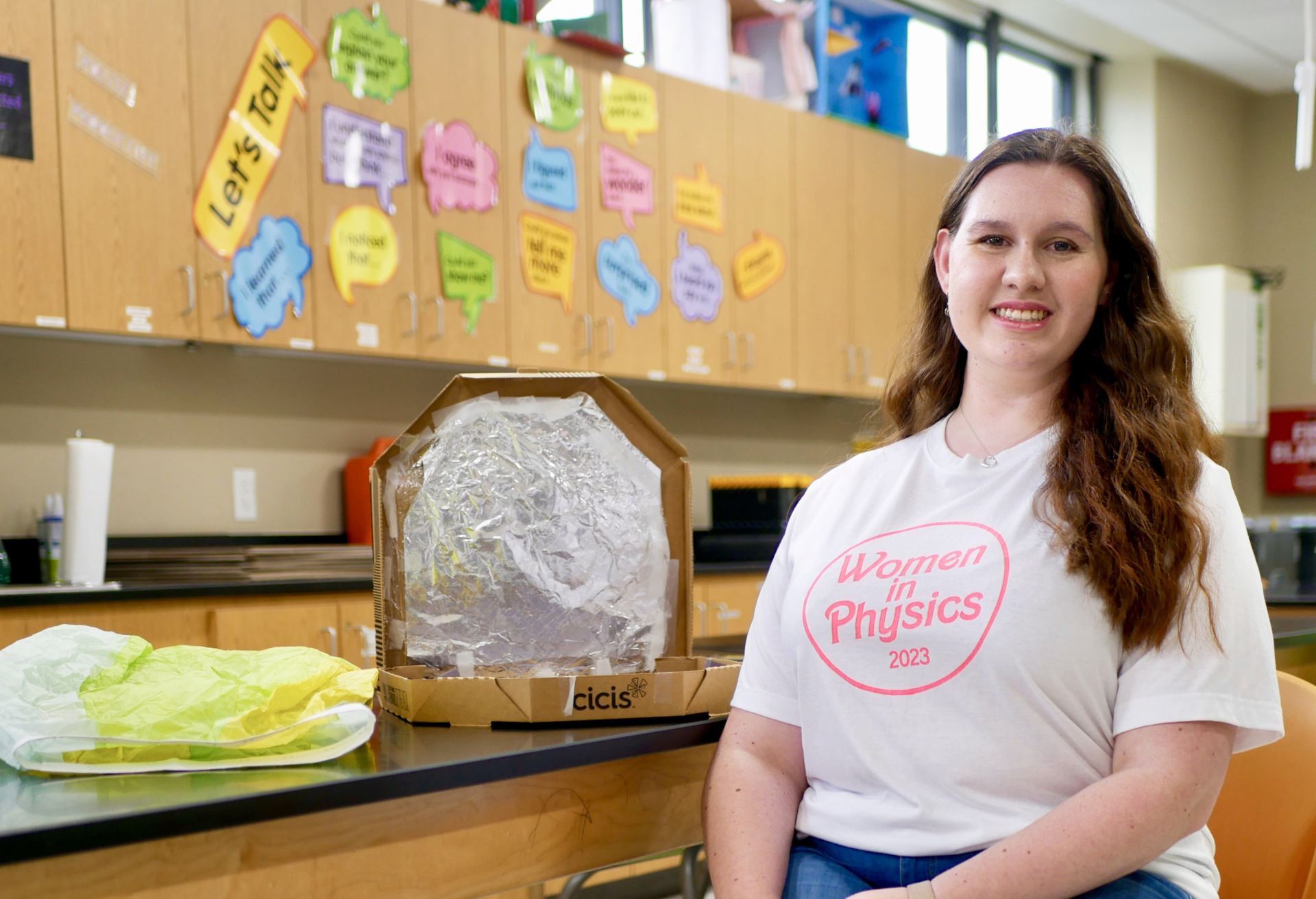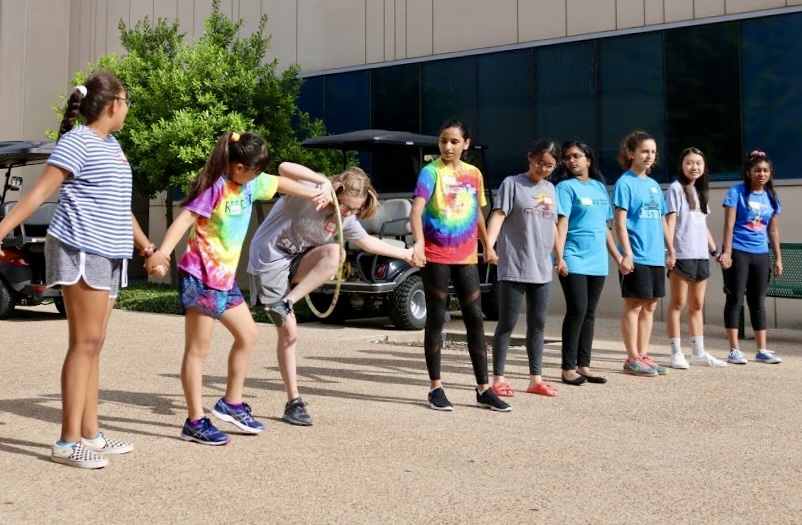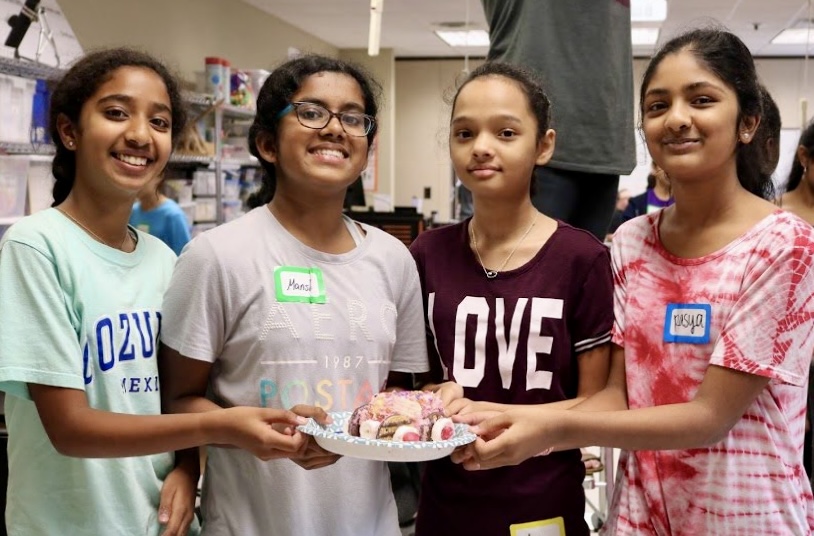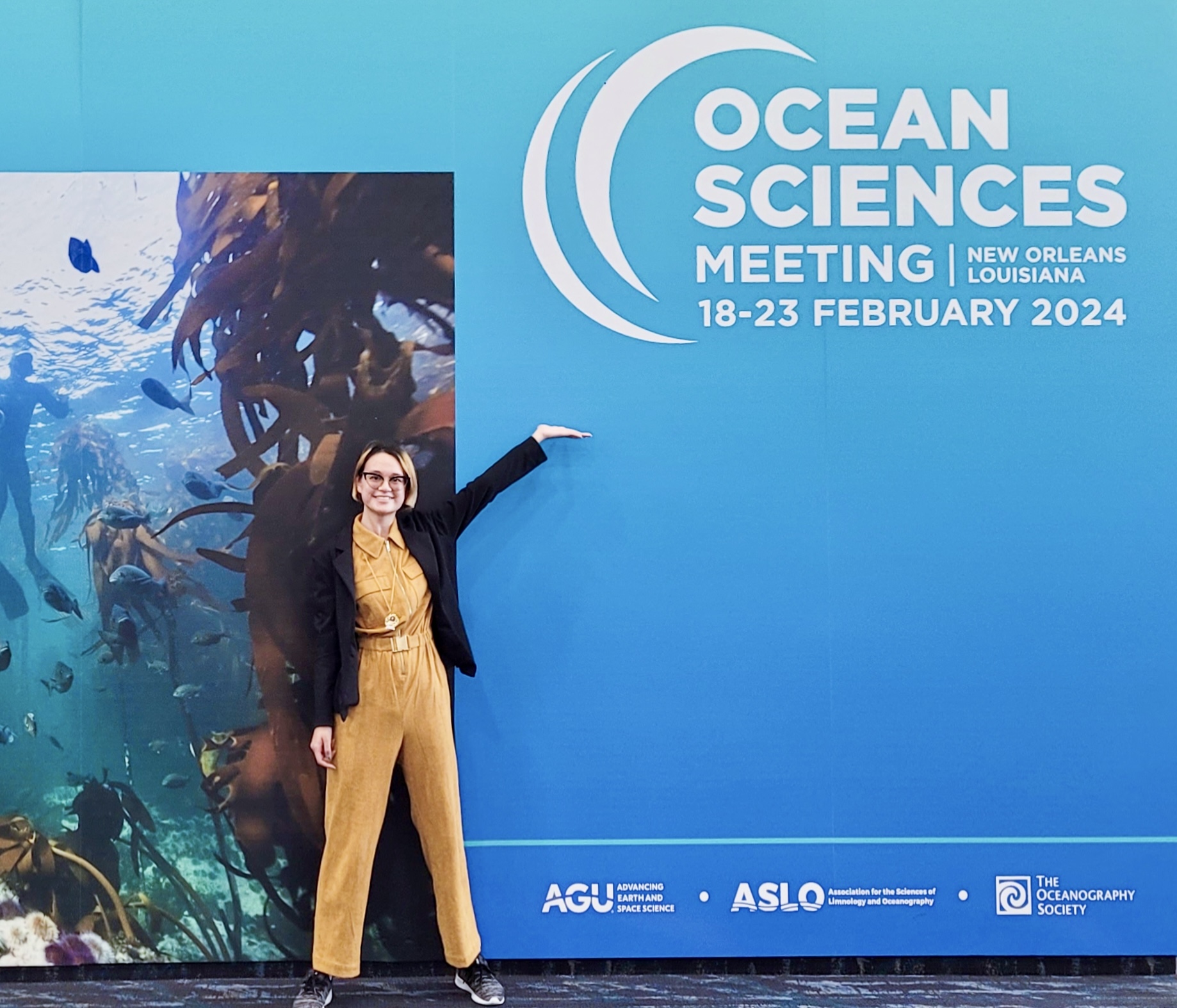By Carly Orewiler
March 1, 2024

Although Noor Malik loved science, mastering Newton’s laws of motion was low on her summer bucket list.
It was 2018, only a couple months before she started high school, and she wasn’t particularly excited about spending a week of her break back in school. At a physics camp, of all places.
“My mom really wanted me to go, but I thought it would be a waste of time,” said Malik, who is now a biochemistry freshman in the School of Natural Sciences and Mathematics (NSM) at The University of Texas at Dallas. “After my first day, I couldn’t wait to go back.”
That hot morning in June, Malik and more than 20 other students were launched into NSM’s Women in Physics Camp, a five-day annual summer program that introduces local middle and early high school girls to science, technology, engineering and math (STEM) with fun, hands-on activities in mechanics, electromagnetism, space science, optics and engineering.
Like many of her peers, Malik’s begrudging attitude quickly changed to excitement during the camp’s staple induction activity: edible racing cars. Teams build their cars out of Rice Krispies Treats and cookie wheels, adorning it with candy for taste before sending it down a steep, 4-foot ramp. They then calculate which group’s confection traveled the fastest and farthest.
Marissa Distin, an NSM mathematics junior and current camp director, has been involved with the camp for nearly 10 years. She and other camp leaders model physics principles through several interactive experiments such as launching bottle rockets and paper hot air balloons, soldering light-up circuit bracelets and building solar boxes.
“Creativity, data analysis and collaboration are important parts of any science or engineering career,” Distin said. “Many girls don’t know how fun it can be until they are actually in it.”
When Dr. Mary Urquhart, associate professor and department head of science/mathematics education (SME), founded the Women in Physics Camp in 2003, she was the only female physics professor.
With first-hand experience with the gender gap in STEM, Urquhart knew she was facing a complex community issue that needed an educational outreach solution.
“Young children, girls and boys alike, tend to love science,” said Urquhart, who is also director of UTeach Dallas. “For girls, interest in the physical sciences declines in upper elementary and middle school, often because those subjects are perceived to be boyish.”
Despite progress in gender equity and growing interest over the last decade, underrepresentation of women in science and math fields continues to persist. According to the 2023 Global Gender Gap Report, women make up less than 30% of the STEM workforce.
Freya Hammar BS’21, MS’22
To address this concern, Texas recognizes Texas Girls in STEM Day each year on March 1, enacted into law by House Bill 3435 in 2019. The holiday promotes programs, celebrations and classes that support women to pursue STEM-related careers and dive deeper into subjects they may not have been encouraged to explore before.
According to Urquhart, Texas Girls in STEM Day is exactly what the UTD camp is all about. Since the program is run by donations, it is free for all participants, making it highly accessible to the community.
“It’s amazing to see the positive impact our camp has on each girl’s journey,” said Distin. “Some people only come to Beginner Camp because their parents signed them up, but a surprising number end up choosing to study science or math-related subjects here at UT Dallas. It’s proof our mission is working.”


That was the case for Freya Hammar BS’21, MS’22, who attended Beginner Camp as a rising 7th grader and returned to Advanced Camp the following year. As a self-proclaimed nerd, she was in her element.
“One day we got to watch MythBusters, which I was obsessed with,” Hammar said. “I remember sitting down, hugging my knees and reciting the entire episode from memory in front of the screen.”
Hammar studied biology and biotechnology at UTD and performed research in professor emeritus Dr. Dennis Miller’s laboratory. In 2023, her paper on genetic diversity in mitochondrial DNA was published in the journal Genes.
“I grew up in Garland, but I didn’t realize we had a campus so close to home,” she said. “I really liked the environment the camp created — I felt very welcomed. That experience was a huge factor in my decision to apply to UTD and pursue science, ultimately.”

During camp, students work together in small teams, guided by veteran campers or volunteer teachers from the SME and UTeach Dallas alumni community.
For Malik, volunteering as a camp leader last summer was an eye-opening experience. She said after connecting with the students and helping them problem-solve, something clicked. For that reason, Malik is currently in the UTeach Dallas program along with her biochemistry program to get her secondary STEM teaching certificate upon graduation.
“If you’re shown like, ‘Hey, you can do exciting things with science,’ it can completely change someone’s life. I hope I can help more girls come to that realization.”
Hammar was also a volunteer camp leader all throughout high school, which was when she met one of her closest mentors Dr. Stephanie Taylor, SME associate professor of instruction. Being encouraged and validated by such an intelligent, successful person is partially why Hammar is pursuing her PhD, she said.
“Women make up slightly more than half the world’s population but significantly less than half of the people in STEM,” Hammar said. “We are every bit as capable as men, so the question is not why we should have more representation. The question is why we don’t.”
Editor’s Note: The target population for the Women in Physics camp are girls as females are an underrepresented population in physics. However, any students, male or female, who choose to apply will be given equal consideration.
To make a donation to the Women in Physics Camp, click here.
Help us leave the planet a better place for future generations. Your support for the School of Natural Sciences and Mathematics funds scientific discoveries with real-world applications, student and faculty recruitment, and academic scholarships.